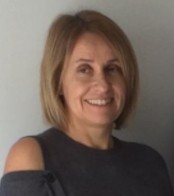Annette Boaz, PhD, King's College London, UK
Annette Boaz is a Professor at King's College London and is director for the National Institute for Health and Care Research (NIHR) Health and Social Care Workforce Research Unit. She has more than 25 years of experience in supporting the use of evidence across a range of policy domains. She was part of one of the largest UK investments in the evidence use landscape, the ESRC Centre for Evidence Based Policy and Practice and a Founding Editor of the Journal Evidence & Policy. She has undertaken an international leadership role in promoting the use of evidence, recently publishing a new book on evidence use ‘What Works Now’. She has a particular research interest in stakeholder involvement, the role of partnerships in promoting research use and implementation science. Annette is a fellow of the Academy of Social Sciences and is a member of the WHO European Advisory Committee on Health Research.
Robert Borst, PhD, Erasmus University Rotterdam, the Netherlands

Robert Borst is an Assistant Professor of Science and Technology Studies in Global Health at Erasmus School of Health Policy & Management, Erasmus University Rotterdam in the Netherlands. His work focusses on science-policy-practice interactions in the health(care) domain, with a particular sensitivity to the importance of everyday types of translation of knowledge into action. Robert is interested in moving beyond the Global North/Global South divide, to instead study practices and actors of global health in diverse contexts, including – but not limited to – the wider European region, the Caribbean region, the African continent, and the Levant. He is a skilled ethnographic researcher who conducts both in-depth empirical research and thorough conceptual analyses.
Alec Fraser, PhD, King's College London, UK
Alec Fraser is a Senior Lecturer in Public Policy & Management at King's Business School. His research focuses on evidence use, financial incentives, and public management reform in the UK and EU countries. He has a particular interest in health and social care. He has extensively researched the development of Social Impact Bonds over recent years.
Kathryn Oliver, PhD, London School of Hygiene & Tropical Medicine, UK

Kathryn Oliver is a Professor of evidence and policy at London School of Hygiene & Tropical Medicine, UK. She is a Social Scientist with interests in how evidence is made and used in public policy, particularly around theorising this relationship and evaluating interventions which seek to improve evidence use. She is currently seconded to the UK Government Office for Science, where she works closely with funders and science advisors to improve the science system, and with Annette Boaz co-directs the Transforming Evidence initiative, a global collaborative seeking to bring together learning and practice from different sectors and disciplines to improve research on evidence use.



